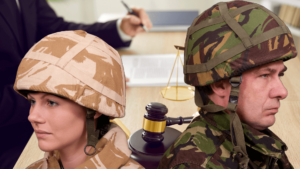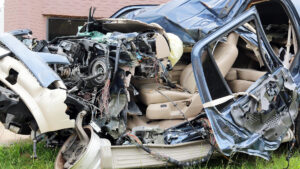Local Authority To Regulate Behavior
Local authorities such as county commissioners, mayors, city managers, and so on can also regulate behavior. Their power flows from state and local law. For instance, in Texas, the mayors and county judges are the designated emergency management directors, and city managers are designated emergency management coordinators in their areas. In those positions, they have certain powers during a disaster to impose specific regulations. They are the governors point people for their local areas.
Preemption
State’s police power isn’t unlimited. Federal law can preempt state actions. Here’s the reason — the Supremacy Clause makes laws duly enacted by Congress the supreme law of the land. For instance, interstate commerce is an area of law that preempts state law. Hence, if a state enacts a law that treads into interstate commerce, that legislation is likely invalid. State law can be deemed invalid for several other reasons, but that discussion is beyond this article.
First Amendment
The First Amendment says:
Congress shall make no law respecting an establishment of religion, or prohibiting the free exercise thereof; or abridging the freedom of speech, or of the press; or the right of the people peaceably to assemble, and to petition the Government for a redress of grievances.
To fight COVID-19, some counties, including Dallas County, where I reside, issued an order that prohibited gatherings of 500 or more people. There are no exceptions for churches. Many pastors, church leaders and lay person(s) wondered if this type of prohibition violates the right to assemble or the Free Exercise Clause of the First Amendment. It’s a fair question, and one that I grappled with as a pastor.
I’m also an attorney and despite knowing how beloved and critical the First Amendment is to Americans, I also know the First Amendment isn’t absolute. It has its limitations. The government can regulate certain aspects of religion that aren’t protected by the First Amendment.
To be specific, the Free Exercise Clause of the First Amendment protects religious thought or belief. It doesn’t protect religious conduct. The U.S. Supreme Court has said the free exercise clause “embraces two concepts — freedom to believe and freedom to act. The first is absolute, but, in the nature of things, the second cannot be.” What we belief has absolute protection from government regulations; but the government can regulate our religious actions. Hence, it’s probably not a violation of the First Amendment when states say during an emergency that no entity can assemble with over 500 people. Assembling is religious actions that can be regulated; unlike religious thought. However, the separation of church and state has deep tentacles in American life.
The takeaway here is states can prohibit specific gatherings under its police power and during a health emergency provided they don’t interfere with religious thought or discriminate against religion generally.
Fourteenth Amendment
The Fourteenth Amendment says,
All persons born or naturalized in the United States, and subject to the jurisdiction thereof, are citizens of the United States and of the state wherein they reside. No state shall make or enforce any law which shall abridge the privileges or immunities of citizens of the United States; nor shall any state deprive any person of life, liberty, or property, without due process of law; nor deny to any person within its jurisdiction the equal protection of the laws.
Legitimate questions arose too about whether states violated the 14th Amendment with their COVID-19 regulations. The main parts of the 14th Amendment are citizenship, equal protection and due process protections. The COVID-19 regulations in question don’t seem to affect one’s citizenship, equal protection, or due process rights. The regulations apply to everyone equally and states seem to have followed proper procedures before imposing the regulations. In my view, there doesn’t seem to be a 14th Amendment violation.
Conclusion
These are mesmerizing times. Events are occurring and will occur that Jesus said will cause men’s heart to fail them for fear. The experts and officials often don’t know what actions to take. And yes, we must challenge their exercise of power during these critical times because their actions will set precedent for the next crisis. Left unchallenged, bad regulations, law and policy become cemented, costing us precious freedoms. However, based on my analysis and the potential danger of COVID-19, the actions of the officials thus far seem to be necessary, reasonable and constitutional.
DISCLAIMER: This article is not intended to be legal advice or to initiate an attorney-client relationship. It’s informational purposes only.
Return to Part 1





